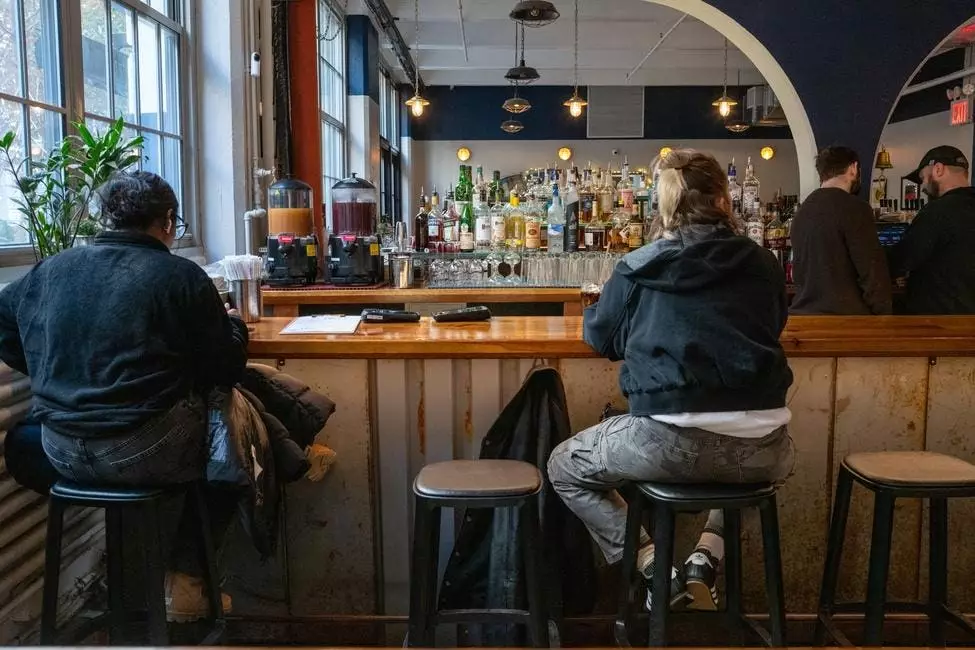For generations, alcohol has woven itself into the fabric of American life, often serving as a celebratory elixir during moments of joy and a social lubricant in casual settings. From toasts at weddings to casual meet-ups, its presence is almost ubiquitous. However, recent developments indicate a significant reconsideration of alcohol’s role in society. As we witness shifting attitudes towards drinking, particularly among younger generations, the message from public health officials has never been more urgent. Dr. Vivek Murthy, the U.S. Surgeon General, has highlighted that alcohol is a preventable carcinogen, with about 100,000 new cancer cases attributed to its consumption each year. Alarmingly, fewer than half of Americans recognize the serious risks associated with alcohol, which raises questions about our collective understanding of its health implications.
In his recent advisory, Dr. Murthy pointed out the correlation between alcohol consumption and at least seven different types of cancer, including breast, liver, and esophageal cancer. The discrepancy between the dangers posed by alcohol and public awareness is staggering. While society has progressed in its understanding of various health risks, alcohol remains an overlooked danger, often dismissed in social contexts. Updating health warning labels on alcoholic beverages could be a crucial step towards remedying this ignorance, fostering a more informed public that understands the consequences of their choices.
The pandemic unprecedentedly altered the landscape of drinking habits. With lockdowns forcing individuals into their homes, many turned to alcohol as a coping mechanism, resulting in a significant spike in heavy drinking—a rise reported at over 20% during peak lockdowns. This increase, however, may not be a permanent fixture; emerging trends suggest a desire for moderation, particularly among younger Americans. As restrictions ease and social interactions resume, a potential reversal in the drinking culture is observable.
Millennials and Gen Z are at the forefront of this shift, prioritizing health and wellness in their lifestyle choices. Recent surveys indicate that 61% of Gen Z plans to cut back on their alcohol consumption in the upcoming year, a marked increase from the previous year. Millennials are also reducing their intake, slashing their drinking by nearly 40%. Their motivations are deeply rooted in a desire for better health outcomes, fiscal responsibility, and mental clarity—all compelling reasons that illustrate a fundamental change in cultural attitudes toward alcohol.
The sober curious movement reflects a broader cultural shift, where individuals are encouraged to rethink their habitual drinking patterns without feeling bound by societal expectations. This reflects a growing consciousness around drinking norms, impelling individuals to engage in social settings without necessarily resorting to alcohol. This shift isn’t merely about the elimination of alcohol but opting for mindful drinking, catering to a demographic eager for healthier socializing options.
The expansion of non-alcoholic alternatives signals a new era in communal dining and recreational outings. Craft mocktails, alcohol-free wines, and innovative zero-proof spirits are designed not just as substitutes but as genuine alternatives that enhance rather than detract from social experiences. Establishments are quickly adapting, offering balanced menus that cater to both alcohol drinkers and those choosing to abstain. Bars now curate exciting drink options that emphasize inclusivity while promoting health-conscious choices.
The financial constraints exacerbated by inflation and rising living costs further complicate alcohol consumption habits. As many Americans reevaluate their discretionary spending, the proclivity to indulge in pricey drinks diminishes. Historically, shifts in economic conditions have influenced drinking trends—similar to how beer consumption remained steady during previous recessions while more luxurious options waned.
Dr. Murthy’s advisory transcends mere health guidance; it marks a potential revolution in public consciousness regarding alcohol consumption akin to past anti-smoking campaigns. As we grapple with this transformation, the questions surrounding the societal role of alcohol come to the forefront: Can we envision a future where drinking is no longer synonymous with social engagement? Could the cultural significance of drinking diminish to a point where people feel liberated to interact and bond without alcohol?
This moment in American culture encourages a reevaluation of our drinking habits and, more importantly, how we connect with each other. The shared experiences and moments of celebration will likely remain integral to human interaction, yet the forms these take might evolve. Whether it involves enjoying a THC-infused drink, savoring a sparkling water, or enjoying a yoga class, the communal experience—essential to social bonding—stands to endure, regardless of whether alcohol occupies a central role. As we navigate this transformative period, we are faced with a unique opportunity: to redefine how we celebrate, connect, and ultimately understand the choices we make surrounding alcohol.


Leave a Reply